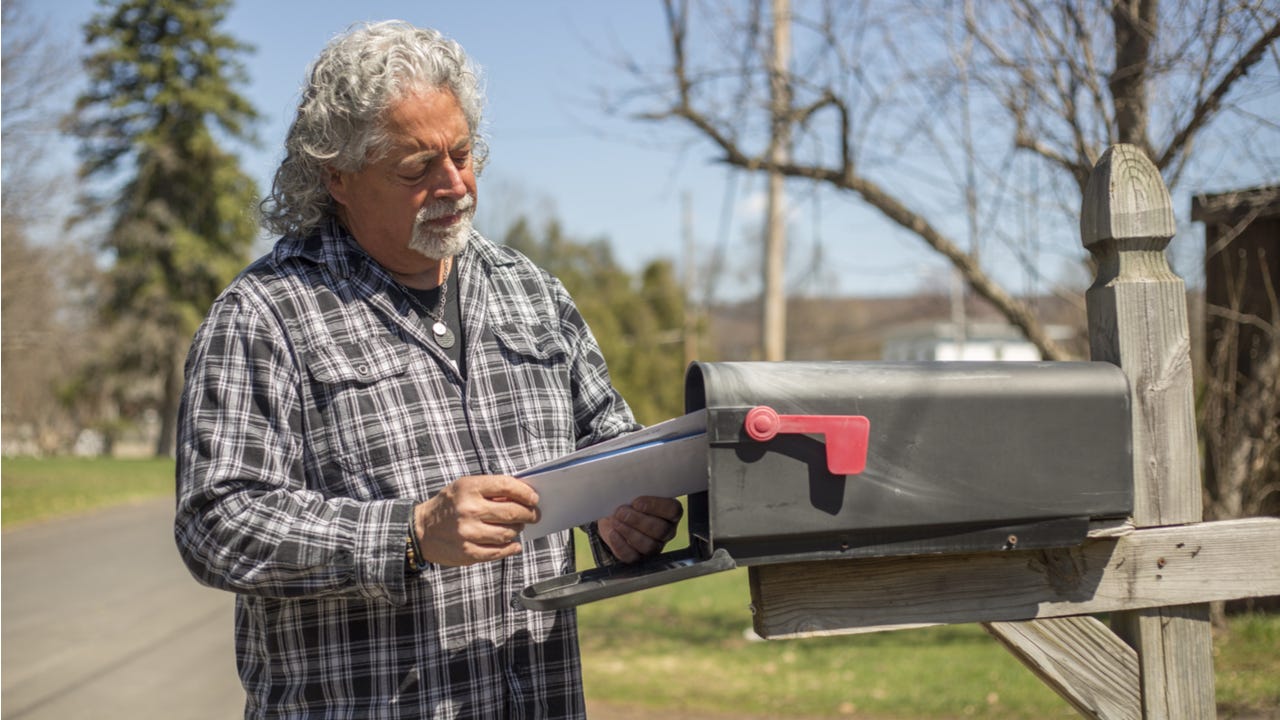How to deal with debt collectors

Key takeaways
- Understand your rights under the Fair Debt Collection Practices Act and report any violations to the proper authorities.
- Before taking any action, request information about the debt from the collector and verify it is yours.
- Get all agreements and settlements in writing to protect yourself from potential scams.
- It may be a good idea to seek professional help, such as a credit counselor, if you have debt collectors contacting you.
Debt collectors use intentionally annoying and anxiety-inducing tactics to get you to pay the bill. When faced with these tense interactions, it’s important to understand the best ways to deal with debt collectors, including knowing what they are and are not legally allowed to do. This knowledge will help you protect your rights and decide the best approach to managing your debt.
How debt collectors get your information
When you fail to pay a debt, your creditor may either sell the debt to a collection agency or hire one to recover the owed amount in return for a fee.
At that point, the collection agency takes over responsibility for pursuing payment. The creditor will typically share personal details with the agency, including your phone number and address, so the agency can contact you. If this information is outdated, the agency may also use online searches to track down your current contact details.
If a debt collector received your information from the original creditor, they should have access to your personal information, the amount owed and the name of the company you originally owed. A legitimate debt collector should be able to provide this information without hesitation when asked.
Your rights when dealing with debt collectors
Under the Fair Debt Collection Practices Act (FDCPA), the Federal Trade Commission (FTC) ensures all debt collectors follow debt collection laws. It’s important to be aware of these laws to stand up to any debt collector that violates your rights.
According to the FDCPA:
- You have 30 days to dispute the debt in writing. If you do so, the agency must cease all collection efforts until they mail you a written verification of the debt.
- The first time a debt collector contacts you, they must inform you that they are attempting to collect a debt and that any information gathered will be used for that purpose, if that contact is over the phone.
- If you hire an attorney, the debt collector must communicate with your lawyer. They cannot contact you unless your attorney fails to respond or gives them permission to speak with you.
- Debt collectors can contact third parties, such as your friends, family or neighbors, to obtain “location information,” including your home or work address and phone number. When doing so, they must identify themselves but are prohibited from revealing you owe a debt.
In addition, the FDCPA has guidelines for non-abusive debt collection practices. For example:
- Debt collectors may not call you without identifying themselves or using an alias.
- Debt collectors are limited on when they can call you — typically between 8 a.m. and 9 p.m. They are not allowed to call you at work if you tell them that your employer prohibits personal phone calls.
- If you send a written request to a debt collection agency to stop contacting you, they must do so. They will be able to contact you only when they are terminating the collection attempts or are escalating the matter to the legal system.
- Debt collectors can’t make you pay more than you owe or threaten you with arrest, jail time or property liens if you don’t pay.
- They must provide you with information about your debt, such as how much you owe, to whom you owed the original debt and what you can do if the debt isn’t yours.
If you feel like any of your debt collection rights are being violated, you should report the debt collector to the Consumer Financial Protection Bureau (CFPB) or your state attorney general.
6 tips for dealing with debt collectors
Anxiety or panic may take over when a debt collector reaches out to you. It’s important to take a step back and fully evaluate the situation at this point. Doing so will help you navigate the situation with a level head.
1. Verify the debt collector’s legitimacy
At first contact, ask the debt collector certain questions regarding the debt, including:
- The name of the debt collection agency.
- The agency’s mailing address.
- The identity of the creditor.
- The amount that the agency claims you owe, including a breakdown of interest and fees.
- What to do if the debt isn’t yours.
By law, the debt collector must provide you with the answers to these questions within five days of the first contact. If the debt collector fails to answer the questions, you may file a complaint with the CFPB or your state attorney general.
Don’t take the agency’s claims at face value if you believe the debt claim may be invalid.
“According to the FDCPA, an individual has a right to dispute any debt sent to collections,” says debt relief expert Sean Fox, president of debt solutions at Achieve. “If the collection agency cannot prove that the debt is its debt, it must stop trying to collect on that debt.
“Handle all disputes in writing. Within five days of first contact, the FDCPA requires that debt collectors must notify the consumer of their right to validate the debt. Then the consumer must request verification (in writing; certified mail is smart) within 30 days of being initially informed of the debt.”
2. Familiarize yourself with the FDCPA
The FDPCA protects consumers from harassment and ensures debt collectors follow specific rules, such as only contacting you during certain hours and not using threats or deception.
By understanding what a debt collection agency can and cannot do, you can protect yourself from fraudulent and abusive practices.
3. Keep records of all communication
Document every interaction you have with the debt collector. Keep copies of letters and emails and make notes on phone calls — including dates, times and the person you spoke with.
4. Don’t make quick payments without a plan
The collection agency may suggest that you make an immediate payment on the debt. However, this may not be a good idea.
Making small payments on a debt may reset the statute of limitations, extending the time a collector can legally pursue you. The statute of limitations may vary based on your state and the type of debt owed.
Consult a professional to fully understand the terms before making any payments.
5. Consider negotiating the debt
If the debt is valid but difficult to pay, consider negotiating a settlement or payment plan with the collector. You may be able to negotiate directly, or you can consider using a debt settlement company to make repayment more manageable.
Make sure to get any agreements in writing before making any payments. Also, note that debt settlement can often inflate your debt and be extremely detrimental to your credit score, so look carefully at the long-term consequences of pursuing debt settlement.
6. Seek legal or professional help
If you’re unsure how to handle the situation or feel overwhelmed, consult an attorney or a credit counselor to guide you through the process and protect your rights. You may be able to find a credit counselor through a nonprofit organization who will work with you at no or low cost.
Bankrate’s take: You may want to consider a debt management plan (DMP) when talking with a credit counselor. Entering into a DMP may help you navigate your debt in a structured way where you receive continued support throughout the plan.
How to deal with debt collectors when you can’t pay
If you absolutely cannot pay your debt, then bankruptcy may be your last resort. Bankruptcy is a legal process where you formally declare in court that you cannot pay your debts. This process stops calls from creditors and wage garnishment temporarily until your case is settled.
Filing for bankruptcy does not require a lawyer, but you may benefit from working with a professional who is familiar with the process. You will have to pay fees related to court costs, and the bankruptcy will remain on your credit report for up to 10 years. But bankruptcy can also clear many types of debt and give you a fresh start.
How to spot a debt collection scam
Having debt can mean you are open to debt collection scams, but you could encounter scams even when you do not owe anyone money. To make sure a debt collector is legit and avoid debt collection scams, watch out for these common signs.
- Check your mail: A validation letter is one way to make sure you’re dealing with a legitimate debt collector. If you only received a phone call from an alleged debt collector, request a validation letter.
- Verify your details: Even if the company is legit and the debt is real, there’s a chance the obligation may not be yours. It could be the debt of someone who shares your name, or it could be from an act of identity theft.
- Make sure you can pay the way you choose: If the person on the phone claims you can only pay immediately through a wire transfer or a prepaid debit card, you are likely dealing with a scammer.
Bottom line
Understanding how to respond when a debt collector calls can help you handle the situation effectively. Debt collectors must adhere to specific regulations when seeking payment, and knowing your rights as a consumer helps you know you’re being treated fairly.
It’s important not to ignore debt collection issues. If you’re unsure whether it’s past your state’s statute of limitations, it’s wise to consult a lawyer or financial professional before making any decisions or engaging further with the debt collector.
Additionally, if you have multiple debts, exploring debt relief options may help consolidate and manage your obligations.
Frequently asked questions
Why we ask for feedback Your feedback helps us improve our content and services. It takes less than a minute to complete.
Your responses are anonymous and will only be used for improving our website.







